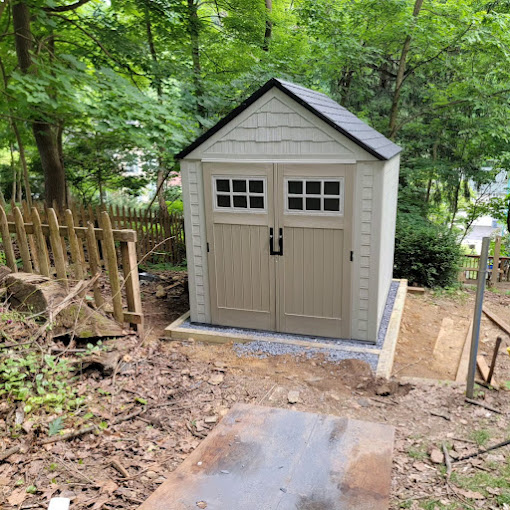"Wehr There" When You Need Us
Whether it’s fixing a broken door, installing new blinds, or setting up a home theater, every homeowner eventually needs the help of a handyman. While hiring a professional may seem like a straightforward process, choosing the right handyman can make all the difference between a job well done and one that causes more headaches.
With so many options available, how do you ensure that the person you invite into your home is trustworthy, skilled, and capable of delivering quality work? This guide will walk you through the essential steps to selecting the best handyman for your specific needs, while avoiding potential pitfalls along the way.

We can help with aging in place modifications Basking Ridge, NJ and the surrounding areas.
Understand Your Project Needs
Before you even begin searching for a handyman, take a moment to clearly define your project’s requirements. Different handymen have varying specialties, so knowing exactly what you need will save time and ensure you hire someone qualified for the job. Start by asking yourself these questions:
- What type of work do I need done? (e.g., plumbing, electrical, carpentry, painting, door repair, etc.)
- Is this a single task or a list of smaller projects?
- Do I need a licensed contractor, or can a general handyman handle it?
- Is there a budget or time frame I need to adhere to?
If your project involves more complex work, such as significant plumbing, electrical wiring, or structural changes, you may need to consider hiring a specialized contractor rather than a general handyman. However, for smaller repairs or improvements, a skilled handyman should suffice. Clarifying the scope of the work will help you zero in on the right candidates quickly.
Call us today if you need Christmas light installation Lincoln Park, NJ or the surrounding areas!
Communication and Professionalism Matter
When inviting someone into your home, communication and professionalism are just as important as skill. Pay attention to how the handyman communicates with you throughout the initial stages of inquiry:
- Are they responsive to calls or emails?
- Do they show up on time for meetings or estimates?
- Are they clear about the steps involved in your project?
A professional handyman will explain things in a way that’s easy to understand, and they’ll be open to answering your questions. If the handyman is difficult to reach, unprofessional in their communication, or doesn’t seem to listen to your concerns, these are red flags. Good communication sets the tone for the entire project and helps prevent issues from arising. That’s why we’re the handyman Lincoln Park, NJ residents choose!
Look for Recommendations and Read Reviews
One of the best ways to find a reliable handyman is through word-of-mouth recommendations. Ask friends, family, or neighbors if they’ve worked with a handyman they trust. Personal referrals are invaluable because they come from people who’ve experienced the handyman’s work firsthand.
However, if you don’t have any personal referrals, don’t worry—there are plenty of online resources available. Websites like Yelp, Angi, and Google Reviews offer extensive feedback from customers who’ve hired local professionals. When reviewing online feedback, consider these points:
- Consistency of reviews: Look for patterns in the reviews. If many customers mention punctuality, professionalism, or poor communication, chances are you’ll have a similar experience.
- Response to negative feedback: See how the handyman responds to any complaints. A professional who addresses negative feedback gracefully is more likely to value customer service.
- Detailed reviews: Reviews that provide specifics about the handyman’s work are more helpful than generic positive or negative feedback. Look for reviews that describe the scope of the project, timelines, and overall satisfaction with the job.
Verify Licensing and Insurance
It’s crucial to make sure that the handyman you hire is properly insured and, if required for your project, licensed. While most small home repairs don’t require a licensed contractor, certain tasks like electrical, plumbing, or HVAC work may require specific certifications, depending on your local laws.
Here’s why licensing and insurance are non-negotiable:
- Licensing: In many states, handymen are only required to hold a license if they take on jobs above a certain cost or in specific trades (like plumbing or electrical). Always check your local regulations. A handyman who follows these guidelines shows professionalism and a commitment to their trade.
- Insurance: This is even more critical. General liability insurance protects both you and the handyman in case of accidents or damages while they’re working on your property. Without insurance, you may be liable for injuries or damages that occur during the project. Workers’ compensation coverage is also important if the handyman employs a team.
Don’t hesitate to ask for proof of insurance and, if necessary, licensing before hiring. A professional handyman will be more than happy to provide this information.

Call us if you need a honey do list contractor!
Ask for an Estimate and Get It in Writing
Once you’ve narrowed down your options, the next step is to ask for an estimate. While some small jobs may not require a formal quote, it’s always a good idea to get a written estimate for larger projects. This helps both you and the handyman clearly understand the scope of the job, timelines, and costs.
Here are some key points to keep in mind when discussing estimates:
- Detailed breakdown: Make sure the estimate includes a clear breakdown of labor, materials, and any other costs. This will help you understand where your money is going.
- Payment terms: A trustworthy handyman should not demand full payment upfront. Instead, many professionals will ask for a deposit and will only expect full payment after the work is completed. Be cautious of handymen who ask for large payments before beginning work.
- Project timeline: Get a sense of how long the job will take. Ask about potential delays and how the handyman plans to deal with unforeseen issues. The timeline should be realistic and agreed upon by both parties.
Having a written agreement ensures there is clarity and reduces the risk of misunderstandings or additional costs popping up later.
Compare Quotes
While it’s always tempting to choose the handyman with the lowest price, keep in mind that you often get what you pay for. A significantly lower estimate could indicate that the handyman may cut corners or use lower-quality materials.
When comparing quotes, consider the following:
- Experience and expertise: More experienced handymen may charge higher rates, but their work is more likely to be completed efficiently and to a high standard.
- Warranty or guarantees: A professional handyman who stands by their work may offer a warranty or guarantee, which can add value beyond the initial cost. For example, Wehr There, LLC offers a 1-year warranty on all services, providing peace of mind that any issues will be resolved.
- Value over price: Consider the value being offered rather than just the price tag. A handyman who listens to your needs, provides a detailed estimate, and offers follow-up support may be worth paying a bit more for.
Assess Past Projects and Portfolio
If possible, ask for examples of the handyman’s past work or a portfolio. Many handymen take pride in showcasing before-and-after photos of their completed projects. Reviewing past work allows you to gauge the quality of their craftsmanship and whether their style aligns with your expectations.
For larger or more specialized jobs, it’s perfectly acceptable to ask for references from previous clients. Speaking directly to a customer who has worked with the handyman can provide additional insights into their reliability, work ethic, and problem-solving skills.
Look for a Long-Term Solution, Not Just a Quick Fix
When hiring a handyman, think beyond just the immediate project. If you find someone reliable and skilled, it’s worth cultivating a long-term relationship. Home maintenance is an ongoing process, and having a trusted handyman you can rely on for future projects can save you time, money, and hassle down the road.
Building a relationship with a handyman who understands your home’s unique quirks and systems is invaluable. They’ll be familiar with your preferences and can provide preventative maintenance to address issues before they become major problems.
Don’t Be Afraid to Trust Your Instincts
Lastly, trust your gut. If something feels off during the hiring process—whether it’s a lack of communication, vague estimates, or simply an uneasy feeling—don’t hesitate to walk away and explore other options. Your home is one of your most important investments, and it’s worth taking the time to find a handyman you can trust completely.
Choosing the right handyman doesn’t have to be stressful. By following these steps, you’ll have the confidence to make an informed decision and find a professional who will treat your home with the care and respect it deserves.

Professional Work You Can Count On
Whether you need TV mounting services or help with a few odds and ends… choosing the right handyman is about more than just finding someone to complete a task. It’s about finding a professional who is reliable, communicative, and skilled enough to tackle the challenges of your project with care. By clearly defining your needs, checking credentials, reading reviews, and communicating effectively, you’ll ensure your home projects are handled by the best.
Take the time to find a handyman you trust—you’ll be grateful for it every time they complete a job seamlessly, leaving your home better than before.



